1683 – Encouraged by William Penn’s offer of 5,000 acres of land in the colony of Pennsylvania and the freedom to practice their religion, the first Mennonites arrived in America aboard The Concord. They were among the first Germans to settle in the American colonies.
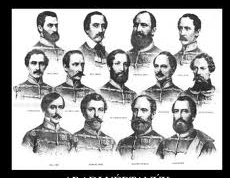
1849 – Thirteen Hungarian rebel generals, who were leaders in the Austrian Revolution, were executed by the Austrian Empire. The rebels had demanded parliamentary government for Hungary and constitutional government for the rest of Austria. Hungarians have come to regard the thirteen rebel generals as martyrs for defending the cause of freedom and independence for their people.
Legend has it that while the revolutionary leaders were being executed, Austrian generals were drinking beer and arrogantly clinking their beer mugs together in celebration of Hungary’s defeat. Hungarians thus vowed never to clink glasses while drinking beer for 150 years thereafter. There is no explanation for the specified time frame of 150 years.
Although theoretically discontinued on October 6, 1999, in practice, this tradition still continues today. Throughout Hungary, the clinking of beer mugs or bottles was – and still is – considered to be in bad manners.
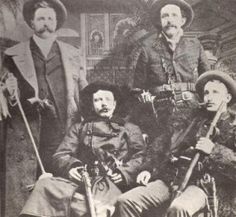
1866 – The Reno gang carried out the first robbery of a moving train in the U.S., making off with over $10,000 from an Ohio & Mississippi train in Jackson County, Indiana. Prior to this innovation in crime, holdups had taken place only on trains sitting at stations or freight yards.
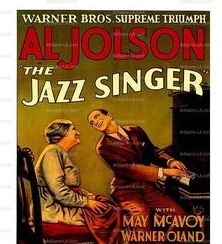
1927 – The Jazz Singer, starring Al Jolson, premiered in New York City. In reality, the first, full-length “talking picture” didn’t contain much dialogue. There were only 291 spoken words in the landmark film. In total, the movie contained barely two minutes worth of synchronized talking, much or all of it improvised. The rest of the dialogue was presented through caption cards.
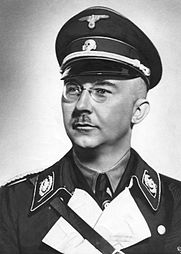
1943 – Two days after discussing his thoughts and plans for the Final Solution (the ongoing extermination of the Jews in extermination camps) with German officers, Reichsführer-SS Heinrich Himmler – in speech in the town hall of Posen, in German Nazi-occupied Poland – revealed to leading officials of the Nazi party (“this most secret circle”) his thoughts on the Jewish question, and his determination to complete his quest to wipe every Jew in Europe off the map.
Read the next paragraph (in italics) slowly. For the first time, a leader of the Nazi regime openly admitted his reprehensible plan. These same officials would later claim they were unaware of the atrocities committed on behalf of the “master race”.
“I ask of you that that which I say to you in this circle be really only heard and not ever discussed. We were faced with the question: what about the women and children? – I decided to find a clear solution to this problem too. I did not consider myself justified to exterminate the men – in other words, to kill them or have them killed and allow the avengers of our sons and grandsons in the form of their children to grow up. The difficult decision had to be made to have this people disappear from the earth. For the organization which had to execute this task, it was the most difficult which we had ever had. […] I felt obliged to you, as the most superior dignitary, as the most superior dignitary of the party, this political order, this political instrument of the Führer, to also speak about this question quite openly and to say how it has been. The Jewish question in the countries that we occupy will be solved by the end of this year. Only remainders of odd Jews that managed to find hiding places will be left over.”
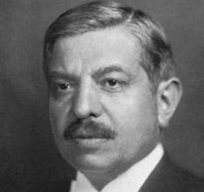
1945 – Former French premier and Vichy collaborator Pierre Laval tried to kill himself on the day he was to be executed for treason. Laval swallowed cyanide just before he was scheduled to be shot by firing squad. A physician saved his life – just in time for Laval to be executed a little less than two weeks later.
1945 – Dr. Leonardo Conti, Reich Health Leader and the man attributed with the killing of a large number of concentration camp prisoners who were of “unsound mind,” hanged himself in his cell in Nuremburg Prison.
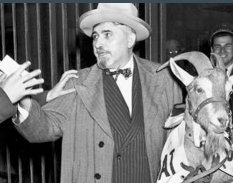
1945 – Billy Goat Tavern owner Billy Sianis was asked to leave World Series game 4 against the Detroit Tigers at the Cubs’ home ballpark of Wrigley Field because his pet goat’s odor was bothering other fans. He was outraged and declared, “Them Cubs, they ain’t gonna win no more,” which has been interpreted to mean that there would never be another World Series game won at Wrigley Field.
The Cubs have not won a National League pennant since this incident and have not won a World Series since 1908.
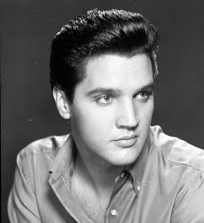
1956 – Elvis Presley released ‘Love Me Tender’ / ‘Any Way You Want Me’.
1961 – President John F. Kennedy, speaking on civil defense, advised American families to build bomb shelters to protect them from atomic fallout in the event of a nuclear exchange with the Soviet Union. Kennedy also assured the public that the U.S. civil defense program would soon begin providing such protection for every American.
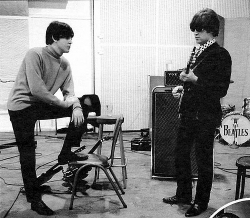
1964 – The Beatles recorded ‘Eight Days A Week’.
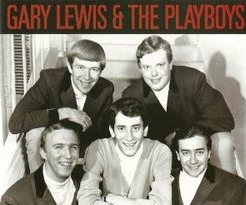
1965 – Gary Lewis & The Playboys recorded ‘She’s Just My Style’ and ‘Sure Gonna Miss Her’. As was the case with virtually all of Gary Lewis’ singles, the musical backing was handled by session musicians; Mike Deasy and Tommy Allsup were on guitars, Leon Russell on keyboards, and Hal Blaine on drums; collectively, they were all members of a larger group known as The Wrecking Crew.
Bass guitarist Carl Radle (shown above in lower left) was the only member of the group allowed to play on recordings. After leaving the group in 1967, he went on to bigger and better things; as a session musician for John Lee Hooker, Delaney & Bonnie, George Harrison (on the ‘All Things Must Pass’ album) and he eventually became a member of Derek & The Dominos (‘Layla’, ‘Bell Bottom Blues’).
1973 – A train carrying religious pilgrims derailed near Saltillo, Mexico, killing more than 200 people and injuring hundreds of others. The train was going down a hill leading to a bridge two miles south of Saltillo. To navigate this section of rails safely, trains had to maintain a speed of less than 35 miles per hour, but that evening the train was going about 75 mph. The locomotive derailed due to the excessive speed, dragging 13 of the train’s 22 cars off the rails with it.
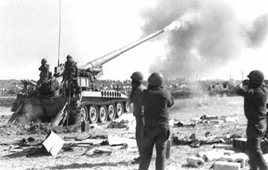
1973 – Hoping to win back territory lost to Israel during the third Arab-Israeli war, Egyptian and Syrian forces launched a coordinated attack against Israel on Yom Kippur, the holiest day in the Jewish calendar. Taking the Israeli Defense Forces by surprise, Egyptian troops swept deep into the Sinai Peninsula, while Syria struggled to throw occupying Israeli troops out of the Golan Heights.
The surprise attack threw the Middle East into turmoil and threatened to bring the United States and the Soviet Union into direct conflict for the first time since the Cuban Missile Crisis in 1962. Though actual combat did not break out between the two nations, the events surrounding the Yom Kippur War seriously damaged U.S.-Soviet relations and all but destroyed President Richard Nixon’s much publicized policy of detente.
1976 – Cubana Flight 455 crashed into the Atlantic Ocean after two bombs, placed by terrorists with connections to the CIA, exploded onboard shortly after taking off from Bridgetown, Barbados. All 73 people on-board were killed. CIA documents released in 2005 indicate that the agency “had concrete advance intelligence, as early as June 1976, on plans by Cuban exile terrorist groups to bomb a Cubana airliner.”
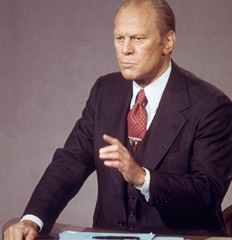
1976 – During a presidential debate against challenger Jimmy Carter, President Gerald Ford was asked by Max Frankel, Sunday editor of The New York Times, about American foreign policy in relation to the Soviet Union in Eastern Europe. Ford talked briefly about the Helsinki Accords and then dropped this bombshell:
“There is no Soviet domination in Eastern Europe, and there will never be under a Ford administration.”
There was one small problem with this statement – it was completely false. Ford continued to defend his statement even after being challenged by an incredulous Frankel, putting the nail in the coffin of his presidential campaign.
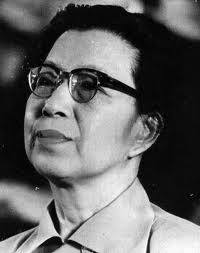
1976 –New Premier Hua Guofeng ordered the arrest of the “Gang of Four” – which included Jiang Qing, the final wife of Mao Zedong – and ended the Cultural Revolution in the People’s Republic of China.
At their 1981 trial, they were charged with the usurpation of state power and party leadership, and the persecution of some 750,000 people (34,375 of whom died during the period 1966-76).
Jiang Qing was extremely defiant throughout the trialt, protesting loudly and claiming she had obeyed the orders of Chairman Mao Zedong at all times. She and her fellow defendants were sentenced to lengthy prison sentences. All have since died, with Jiang Qing committing suicide in 1991.
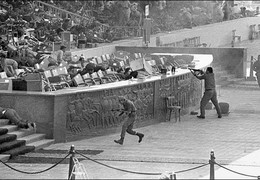
1981 – Islamic extremists assassinated Anwar Sadat, the president of Egypt, as he reviewed troops on the anniversary of the Yom Kippur War. Led by Khaled el Islambouli, a lieutenant in the Egyptian army with connections to the terrorist group Takfir Wal-Hajira, the terrorists, all wearing army uniforms, stopped in front of the reviewing stand and fired shots and threw grenades into a crowd of Egyptian government officials. Sadat, who was shot four times, died two hours later. Ten other people also died in the attack.
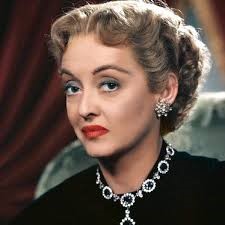
1989 – Actress Bette Davis (10 Academy Award nominations for acting – Dark Victory, The Letter, The Little Foxes, Now Voyager, Mrs. Skeffington, All About Eve, The Star, Whatever Happened To Baby Jane? – with the other two resulting in Academy Awards for Best Actress – Dangerous and Jezebel) died of cancer at the age of 81.
1991 – Actress Elizabeth Taylor married construction worker Larry Fortensky in a ceremony held at singer Michael Jackson’s Neverland Ranch in California. It was her eighth marriage and Fortensky was her seventh husband (only Richard Burton was foolish enough to marry her twice).
Taylor, a Hollywood screen legend known for her violet-eyed beauty and her roles in such movies as Cat On A Hot Tin Roof and Cleopatra, reportedly met the two-decades-younger Fortensky at the high-profile Betty Ford Center for Drug and Alcohol Rehabilitation. The pair divorced in 1996.

1991 – University of Oklahoma professor Anita F. Hill, former aide to U.S. Supreme Court nominee Clarence Thomas, testified before a Senate committee that Thomas sexually harassed her, and the allegations nearly undid Thomas’ nomination to the High Court.
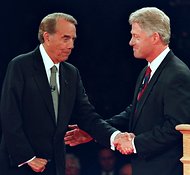
1996 – President Bill Clinton faced his Republican challenger, Senator Bob Dole from Kansas, in their first debate of that year’s presidential campaign. Polls indicated that most voters considered Clinton the winner of the debates and he handily won re-election to a second term in November.
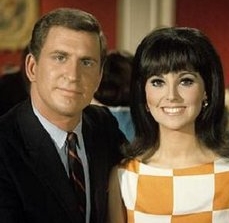
1996 – Actor Ted Bessell (best remembered for role was as Donald Hollinger in That Girl) died an aortic aneurysm at the age of 61.
1997 – Johnny Vander Meer (an average baseball pitcher but one who is forever remembered as the only man in Major League History to throw two consecutive no-hitters) died of an abdominal aneurysm at the age of 82.
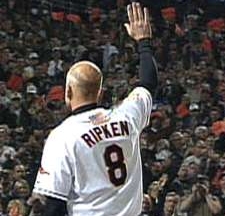
1997 – Cal Ripken played in his final game, bringing to an end a 21-year career (all of them with the Baltimore Orioles) that saw him accumulate 3,184 hits, 431 home runs, and 1,695 runs batted in. Ripken is best known for holding the record for most consecutive games played … an astounding 2,632.
Compiled by Ray Lemire ©2015 RayLemire.com. All Rights Reserved.